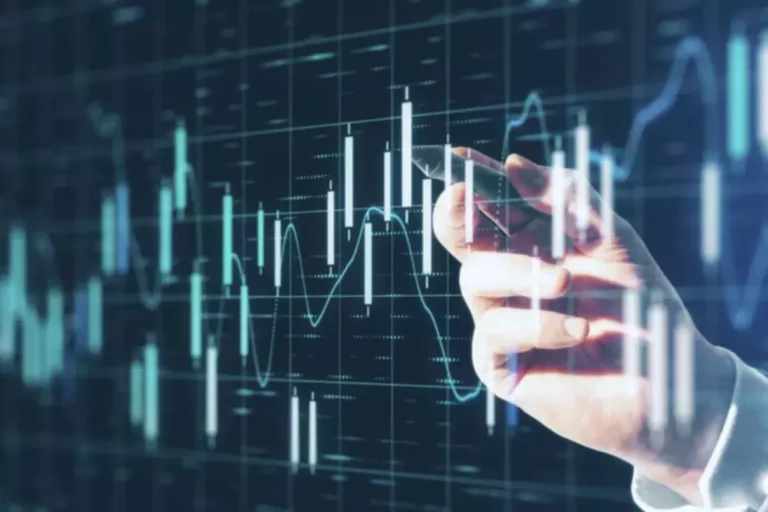Call: +8801919053634, +8801721053634
Become profitable trader with a help of our great community. This A-Book transaction is what most people understand as the role of a traditional broker. If the broker operates in this manner, it effectively leads to some dangers. Clients who have been duped will not keep quiet and will undoubtedly damage the broker’s image, which is crucial for achieving success in the forex market. In the end, it is a long-term collaboration that wins the day. The material is for general information purposes only (whether or not it states any opinions).
Whereas an A-book broker is a business that offers their services to professional traders. This type of model (No Dealing Desk) operates as a middleman between the trader and the market. By choosing to deal through an A-Book Forex Broker, the trader cuts out both the market maker and their dealing desk. Therefore removing the parties that would otherwise profit from their transactions.
California Legislature Passes Delete Act Regulating Data Brokers – Slashdot
California Legislature Passes Delete Act Regulating Data Brokers.
Posted: Fri, 15 Sep 2023 23:33:22 GMT [source]
They can simply reset your account balance to zero if they want to, and because they don’t owe anyone any money on your behalf, it’s basically a fake debt. To successfully identify profitable and unprofitable investors, Forex Brokers have software that analyzes their clients’ orders. what is a book vs b book For example, they can filter traders by the amount of their deposit, the leverage used, the risk taken with each transaction, and the use or non-use of protective stops. In this model, prices are acquired from several market participants instead of from just one liquidity provider.
A-Book vs B-Book Broker. The key differences between the two forex models
Client orders are delivered to the market in two various ways via distinct types of broker operating technologies. We are going to discover the difference between A book and B book broker models. A-Book models are the most common form of broker operating technology. Each one has its own set of perks and downsides to consider. Forex brokerage models A and B differ primarily in handling client accounts. The A-book utilizes interbank market execution for client orders, while the B-book processes orders internally without utilizing the interbank market.
While A book brokers are usually preferred, there are some downsides to this as well. Because your orders are processed directly to the liquidity pool, you will witness variable spreads. The spreads can be very tight when liquidity is high but during low volume periods, the spreads can vary significantly. A Book in forex is defined as a type of execution model that is STP or Straight Through Processing. You might have come across forex brokers who call themselves, STP broker, or an ECN broker or a non-dealing desk broker. In this model, a Broker chooses to trade against his clients.
Always do your own research and only execute trades based on your own personal judgement. The main reason I kept using Oanda for so long is because their platform is fully integrated with TradingView, and they allow me to trade in any position size (units instead of lots). I’m not being paid to say any of this – I just want to be transparent and open about my experiences as a trader.

The customer support options offered by A-Book Versus B-Book Brokers can include phone answering services, live chat support, and email customer service support. Efficient and hassle-free funding and withdrawal facilities can significantly improve your overall trading experience when dealing with A-Book Versus B-Book Brokers. It streamlines the trading process and helps you focus on making informed decisions rather than worrying about deposit and withdrawal matters with A-Book Versus B-Book Brokers. Selecting A-Book Versus B-Book Brokers at the forefront of innovation and considered an industry leader is crucial. Doing so will ensure you are equipped with the tools and features to navigate volatile A-Book Versus B-Book markets effectively.
First, What are A-Book Brokers?
In the case of a B Book, your forex broker acts as a counterparty to your trades. The B book broker goes by different names such as market maker or a fixed spread broker. But to be fair, simply reducing the amount of leverage retail traders can access does reduce how quickly they can blow their accounts.

I know I know… I was as shocked as you when I first learned how the inner workings of the brokerage industry operate. ALL regulated forex brokers possess what’s known as a “market maker license”. Whether the broker is regulated by ASIC, FCA or the NFA, it’s the same. They have the OPTION to fill the trades internally (B-Book) or pass them through to the market (A-Book). Both traders and brokers have disadvantages when using the A-Book approach. In order to move customer orders to the external market, the broker must make agreements with a liquidity provider (or with many of them), secure licenses, and offer technical assistance to the liquidity provider.
Most of the turnover goes to the liquidity provider with a narrower spread, which is why the broker loses $5. To solve this problem, the broker adds 2-pip markup to the spread of the first liquidity provider, thereby distributing the trades between the counterparties equally. The A-Book model is a fundamentally different model of work in which there is no conflict of interest between the trader and the company. In this scheme of work, all client’s positions are transferred directly to the liquidity provider, and the broker earns only on commission or markup to the spread. In this case, there is no conflict of interest between the company and the client because the broker will receive the profit no matter whether the trader gains or loses in the market. But, certainly, the company is interested, first of all, in profitable traders because, in this case, a mutually advantageous collaboration between the company and the client will be long-term.
And it is in your best interest to understand how the trades are processed. You might have heard the terms “dealing desk broker” and “no-dealing desk broker.” These terms refer to the execution of trades. This is not true if you’re trading against other traders – ie. Directly to the underlying market through an A-book broker. It’s good that ASIC have forced these B-book brokers to reduce these shady practices which have exploited ignorant retail traders for the past few decades.
A-Book brokers might be a better option for you if you value transparency, direct market access, and prefer a no-conflict trading environment. If you prioritize obtaining the best possible prices, quick and efficient order execution, and the ability to trade with multiple liquidity providers, A-Book brokers can offer you the advantages you seek. Furthermore, if you have a higher trading volume or prefer variable spreads that can potentially tighten during optimal market conditions, A-Book brokers can be a suitable choice. Traders who are focused on trading strategies that require direct market access, such as scalping or high-frequency trading, may also benefit from the offerings of A-Book brokers. A-Book brokers usually offer variable spreads, which means the spread can fluctuate based on market conditions. During periods of high liquidity and low volatility, the spread tends to be tighter, resulting in lower trading costs.
- It is all about considering their pros and cons before choosing which one to trade with.
- To address this concern, reputable brokers using the B-Book model should prioritize fair and transparent practices and adhere to strict regulatory standards.
- However, on B-Book, that’s not an issue because they fill your order instantly.
- “B-Book execution” is just a fancy phrase for taking the opposite of your trade.
- Flexible reporting tools enable real-time, scheduled and ad hoc reports.
- By entering your email address you are giving us permission to send you news and offers.
Nothing in this material is (or should be considered to be) legal, financial, investment or other advice on which reliance should be placed. No opinion given in the material constitutes a recommendation by FXCC or the author that any particular investment, security, transaction or investment strategy is suitable for any specific person. In some cases, such brokers may use a “dark pool” to disguise the actual location of where orders are fulfilled. When banks and other LPs receive these toxic flow, their trade rejection rates are higher. Some of your trades will be rejected by the banks or LPs (known as ‘last look’) and you will receive a worse price, because you will be filled at the next best price.

However, many brokers use the B-Books and do not even hide it. The matter is that to bring client orders to the external market, brokers need to make contracts with a liquidity provider (and, as a rule, not just one), obtain https://www.xcritical.in/ licenses, provide technological support. All these are costs that the A-Book broker compensates at the expense of high mark-up to the spread. The trick is to properly qualify the traders or trades to the right category.